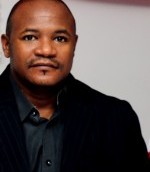Abode Arik Airlines to Ghana on Monday 16th March 2015 to participate in a 2 day meeting on finance for development as a prelude to the UN Finance for Development Conference schedule for July in Addis Ababa, a co-passenger saw me smiling and couldn’t hold but to ask me what’s was going on? I explained to him that I just came out of a seminar with an outcome when implemented has the potential to contribute to the reduction of under-five deaths in Nigeria via Routine Immunization (RI). I was so elated not because the problem is solve but because I have seen a clear pathway to make it happen if all hands will be on deck and Iam also confident that the government officials in the meeting were serious as we had a frank and transparent talk on how to get out of the doldrums.
The meeting was convened by the National Primary Health Care Development Agency (NPHCDA) in Abuja titled with a theme ‘Sustaining RI Financing’. The objectives for the meeting were; to review RI financial resources requirements for 2015 & beyond, to deliberate on alternative RI funding options in the light of GAVI graduation; dwindling oil revenue & GDP rebasing and to evolve advocacy strategies for exploring in-country funding opportunities. 2 papers were presented prior to a robust plenary discussion. ‘2014 RI financing & Financial Resources Requirements for 2015’ by Mr. Billy Ashogbon, NPHCDA Director Finance & Accounts and ‘Alternative Financing Options for RI in 2015 & beyond’ presented by my humble self. The ever energetic NPHCDA Executive Director Dr Ado Muhammad led the plenary discussion at the end of the 2 papers.
The meeting was in an agreement that significant progress were recorded in Nigeria as we have successfully reduced childhood mortality, and vaccines have been a significant contributor. New vaccines such as Pentavalent were introduced and R.I coverage has improved significantly from about 48 to 50 % in 2012 and 2013, to coverage of 87% nationwide in 2014 and Nigeria is moving towards Polio Interruption and Eradication as in 2014 only 6 cases were reported.
The meeting also explored challenges to maintain and sustain the gains of the past in 2015 and beyond. One of them is the Nigeria’s GDP rebasing which placed the country from being a Low Income Country to Lower Middle Income Country. In line with that Nigeria will graduate from GAVI (Global Vaccine Alliance) support beginning in 2015 and will be responsible for paying full payment in 2020 for vaccines. GAVI graduation calculated at 15% increase in Nigeria co-financing in 2015, and linear increase in co-financing obligation between 2015 and 2020. In 2020, the full market price occurs, and Nigeria pays the full cost of device and average freight; for new vaccines, the ramp-up is from the time of introduction to 5 years after introduction.
Other challenges we may face in the health sector is the delay expected in budget passage, expected delays in release of actual cash for routine vaccines, supplementary vaccines, special vaccines, devices. For 2015, the total requirement for vaccines is $225 million, with Nigeria government making available $105 million, GAVI making available $120 million. Going by 2014 funding level, there is an anticipated funding gap of $72 million. Nigeria is at a crossroads and if the funds aren’t mobilized may lead to scale back Routine Immunization plans for adding more vaccines or look for alternative sources of funds to bridge the funding gaps or mobilized the states to get involved in RI funding. Advocacy and sensitization have to be deployed to increase funding as well as engaging Ministry of Finance, National Assembly, Governors’ Forum, Private Sector Health Alliance, individual foundations as well as work to ensure implementation of the National Health Act. It has a mandate for the establishment of a Basic Health Care Provision Fund from an annual grant of 1% from the Federal Government’s Consolidated Revenue Fund, grants from international donor partners and counterpart funding of at least 25% from States and LGAs. 20% of such funds is for essential drugs, vaccines and consumables for PHCs
The meeting also deliberated that the Government of Nigeria (GoN) plans to introduce 5 new life-saving vaccines between 2014-18, including malaria when licensed and it the updated Routine Immunization program can save 1.2 million lives between 2015 – 2020 compared with the current program, However delaying introduction of the new vaccines by 1 year will result in 5,000 more deaths over 2015-2020, delaying by 2-years would result in 50,000 more deaths over 2015-2020 and choosing not to introduce or sustain key vaccines will result in fewer lives saved. No Pneumo/rotavirus will result in half million more deaths over 2015-2020, no HPV (cervical cancer), Measles- Rubella, Meningitis, will result in 100,000 deaths over 2015-2020.
The meeting unanimously agreed to explore the establishment of a ‘Special Vaccine Fund’ using the public-private partnership with a trustees that will inspire donors domestically and internationally to commit resources as well as agree with Ministry of Finance for a specific source of income via taxation to be channeled yearly to the fund.
I told my Arik Airline co-passenger finally that I was smiling because I have seen the light at the end of tunnel. It may be the hard way but of course the only way out of the impending financial doldrums.
1st published in Daily Trust Newspaper of 24th March 2015 by Dr Aminu Magashi Coordinator Africa Health Budget Network & Publisher Health Reporters (healthweekly@yahoo.com)


